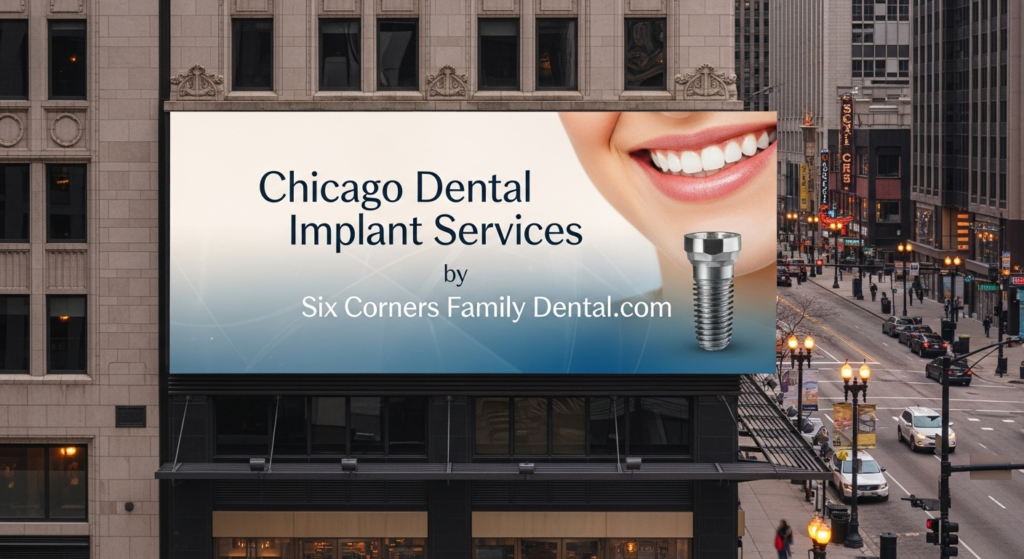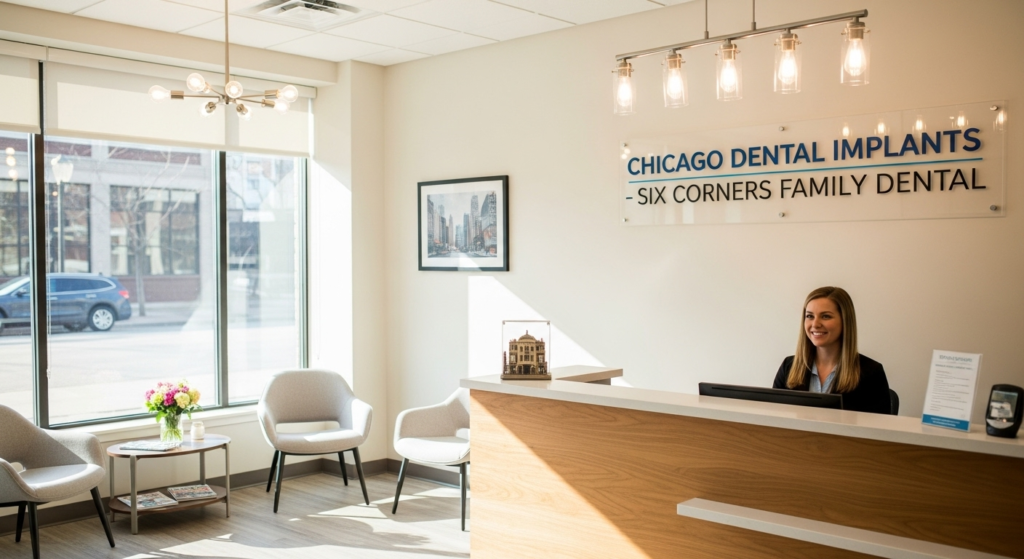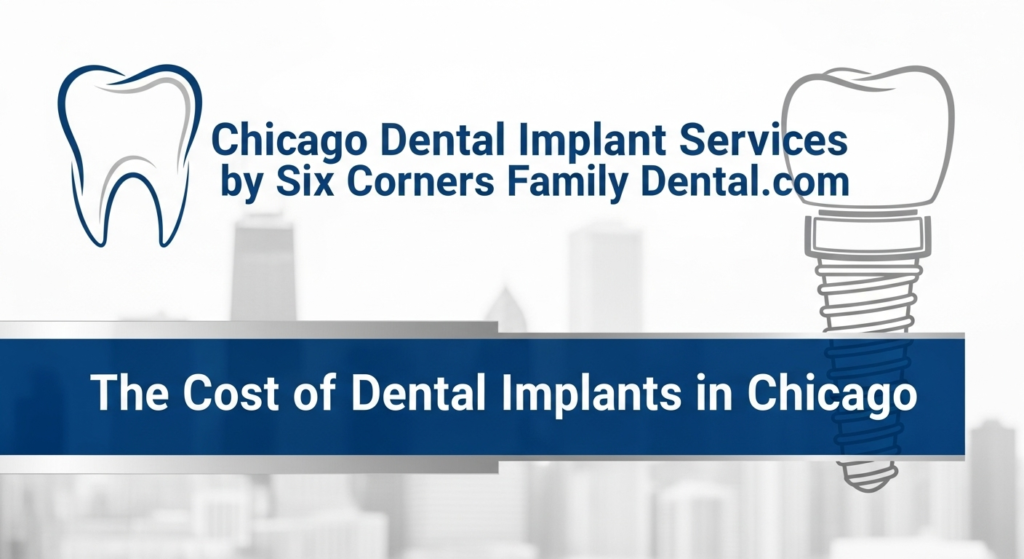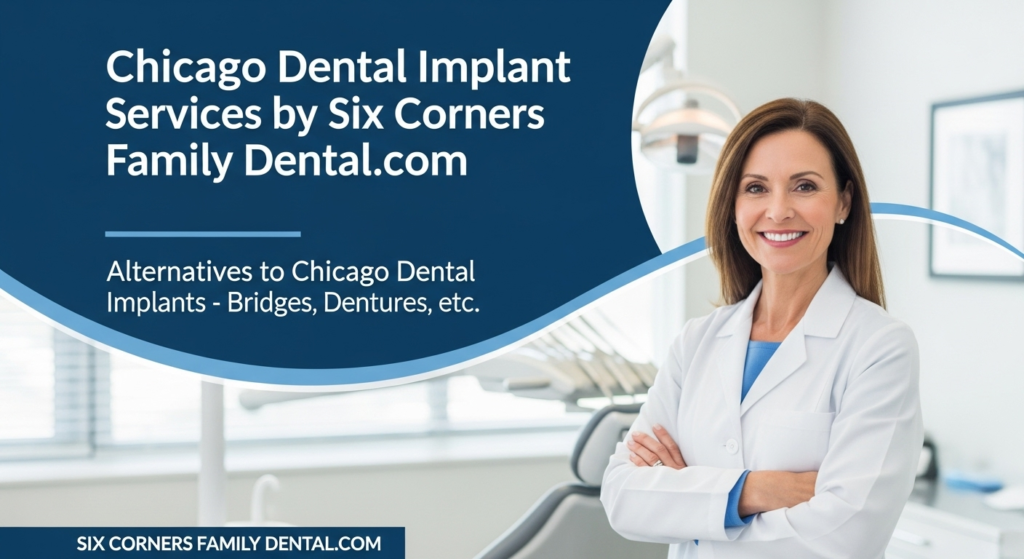
Chicago Dental Implants:Alternatives (Bridges, etc)
Dental implants are a long-term investment in your health, confidence, and quality of life. Unlike other options, they are designed to last, preserving your jawbone and functioning just like natural teeth.
🪥 Full Chicago Dental Implant Guide
🪥 Step by Step Dental Implant Procedure
🪥 Understanding the Dental Implant Timeline
Alternatives to Dental Implants
While dental implants are often considered the gold standard for tooth replacement due to their stability, longevity, and bone-preserving qualities, several other viable options exist. The choice among these alternatives often depends on individual patient needs, budget constraints, oral health status, and long-term goals. Understanding the characteristics, advantages, and limitations of each option is crucial for making an informed decision.
Dental Bridges
Characteristics: Dental bridges are fixed dental restorations that “bridge” the gap created by one or more missing teeth. They consist of artificial teeth (pontics) held in place by crowns that are attached to the natural teeth or dental implants on either side of the gap.5
Pros: Bridges are generally more affordable than dental implants initially, and their placement does not require surgery into the jawbone. They offer a quicker solution, often completed in a few appointments over a couple of weeks, and effectively restore chewing function and appearance.5
Cons: A significant drawback is that traditional bridges necessitate the grinding down of adjacent healthy teeth to accommodate the crowns, thereby sacrificing their natural structure and health.1 The bone beneath the bridge, lacking stimulation, can resorb (deteriorate) over time, potentially leading to visible defects if gums recede.1 The cement holding the bridge in place can also wash out, leaving the anchor teeth vulnerable to decay.1 Bridges generally have a shorter lifespan than implants, typically lasting 5-15 years.5
Cost Comparison: A three-unit bridge typically costs between $2,500 and $3,500, making it appear more economical upfront than a single dental implant.19
Partial Dentures
Characteristics: Partial dentures are removable appliances designed to replace several missing teeth when some natural teeth still remain in the arch. They typically consist of replacement teeth attached to a gum-colored plastic base, often with metal clasps that attach to existing natural teeth.5
Pros: Partial dentures are a cost-effective option and are relatively easy to adjust or replace. Modern designs have improved in comfort and natural appearance.26
Cons: Unlike implants, partial dentures can shift or require adhesives for stability, which may affect confidence during eating and speaking.5 They may not offer the same level of stability or natural feel as implants, and the visible clasps can sometimes detract from aesthetics.5 Partial dentures require daily removal for thorough cleaning and do not stimulate the jawbone, leading to continued bone loss over time.27
Cost Comparison: Generally, partial dentures cost between $500 and $2,000.20
Full Dentures
Characteristics: Full dentures are traditional removable appliances used for patients who are missing all teeth in either the upper or lower arch of the jaw.5
Pros: Full dentures are an affordable and relatively quick solution for restoring both function and appearance when all teeth are missing.26
Cons: Patients often require a period of adjustment to become accustomed to wearing full dentures. They can be unstable, potentially slipping or causing discomfort, and do not stimulate the jawbone, leading to progressive bone loss and a “sunken” facial appearance over time.5 Full dentures must be removed daily for cleaning and may not offer the same level of realism or comfort as implant-supported options.5
Cost Comparison: The initial cost for traditional dentures is around $3,000. However, over a 20-year period, with necessary relines and replacements, the total cost can accumulate to $12,600-$16,000.19
Resin-Bonded Bridges (Maryland Bridges)
Characteristics: Also known as Maryland bridges, these are a conservative option primarily ideal for replacing front teeth. They involve bonding the artificial tooth to the back surfaces of adjacent natural teeth using a metal or tooth-colored framework, with minimal or no preparation of the abutment teeth.26
Pros: Maryland bridges are less invasive than traditional bridges, requiring minimal tooth preparation and often no anesthesia or downtime. They are relatively easy to replace if a problem arises.26
Cons: They are not suitable for posterior teeth due to their inability to withstand significant bite forces. They are also generally not recommended for patients missing more than two teeth or those with poor oral hygiene or high caries risk. They can break, and their aesthetic match to natural teeth may not always be perfect.29
Dental Flippers
Characteristics: A dental flipper is a removable partial denture, typically made of hard acrylic or metal, designed as a temporary tooth replacement. It can hold one or more prosthetic teeth and is often used as a stop-gap measure.27
Pros: Flippers are highly affordable, often costing between $300 and $500 for a front tooth flipper.27 They are quick to produce, can appear natural, and are easy for patients to remove. They also help prevent surrounding teeth from shifting into the open space and can be prepared even before the natural tooth is extracted.27 Their primary role is often temporary, used while a patient waits for a more permanent solution like a dental implant, or for individuals who are not immediate candidates for implants due to medical conditions or insufficient bone.27
Cons: Flippers are not durable or long-lasting and are generally intended for short-term use.27 They can be unstable and uncomfortable, especially initially, and the clasps or hooks that hold them in place may be visible.27 They can limit the consumption of hard foods, require thorough daily cleaning, and do not stimulate the jawbone, leading to continued bone loss.27 Their grip can also loosen over time, and they are prone to breaking easily.27
Comparison of Dental Implant Alternatives
The following table provides a comparative overview of dental implants and their common alternatives, highlighting key characteristics, advantages, disadvantages, longevity, and cost considerations. This comparison illustrates the spectrum of tooth replacement options, where the choice often involves a trade-off between immediate financial savings and long-term costs, oral health implications, and overall quality of life.
Feature / Option | Dental Implants | Dental Bridges | Partial Dentures | Full Dentures | Resin-Bonded Bridges (Maryland) | Dental Flippers |
Characteristics | Fixed, titanium post integrated into jawbone, supports crown/bridge/denture. | Fixed, crowns on adjacent teeth “bridge” gap. | Removable, replaces several teeth, clasps to existing teeth. | Removable, replaces all teeth in an arch. | Fixed, bonded to back of adjacent teeth. | Removable, temporary, single/few teeth. |
Pros | Natural look/feel, bone preservation, high stability, long-lasting, no adjacent tooth alteration. | More affordable than implants, no surgery, quicker solution, restores function/appearance. | Cost-effective, easy to adjust/replace, improved aesthetics. | Affordable, quick restoration of function/appearance. | Conservative, non-invasive, minimal tooth prep, no anesthesia. | Affordable, quick, natural-looking, temporary space filler, prevents tooth shifting. |
Cons | Higher initial cost, requires surgery, longer treatment time (osseointegration), potential need for supplementary procedures. | Requires grinding healthy adjacent teeth, bone resorption underneath, cement issues, shorter lifespan than implants. | Can shift/require adhesives, less stable, visible clasps, no bone stimulation, daily removal. | Unstable, takes time to adjust, no bone stimulation (bone loss/sunken face), daily removal. | Not for posterior teeth, not for multiple teeth, can break, aesthetics may vary. | Not durable/long-lasting, can be uncomfortable/unstable, visible clasps, limits hard foods, no bone stimulation, daily cleaning. |
Typical Longevity | Lifetime (implant post), 10-15 years (crown) | 5-15 years | Varies, often 5-7 years | 5-7 years (requires relines/replacements) | Varies, typically shorter than traditional bridges | Short-term (temporary solution) |
Estimated Cost (Chicago) | $3,500-$6,000 (single) | $2,500-$3,500 (3-unit) | $500-$2,000 | ~$3,000 (initial) | Varies, generally less than traditional bridges | $300-$500 (front tooth) |
Primary Role | Permanent, definitive tooth replacement | Permanent fixed solution | Removable, functional replacement | Removable, functional replacement | Permanent fixed solution (limited scope) | Temporary space filler, interim solution |
This comparison clearly illustrates that the choice of tooth replacement option involves a complex decision-making process. Patients must carefully weigh immediate financial savings against long-term costs, potential oral health implications (especially bone loss), and the desired quality of life in terms of stability, comfort, and aesthetics.
The understanding that the “cheapest” option upfront may not always be the most cost-effective or beneficial in the long run is a critical consideration. Furthermore, the critical distinction between “temporary” and “permanent” solutions, particularly for dental flippers, is paramount.
Flippers are consistently described as temporary measures, often used while waiting for more definitive treatments like implants. Patients considering flippers should be explicitly aware of their transient nature and inherent limitations, reinforcing the value proposition of implants as a comprehensive and definitive long-term replacement.
Chicago Dental Implant Guide Sections:
🪥 Full Chicago Dental Implant Guide
🪥 Step by Step Dental Implant Procedure
🪥 Understanding the Dental Implant Timeline
🪥 Chicago Dental Implant Infographic
🪥 Chicago Dental Implants Interacticve Guide
🪥 Alternatives to Chicago Dental Implants

FILL OUT FORM TO SET UP A Dental Appointment
Chicago Dentist Care
Larry A. Fisher, D.D.S.
4949 W. Irving Park Rd. – Suite B
Chicago, IL 60641
(773) 282-4508
Free Parking Available


